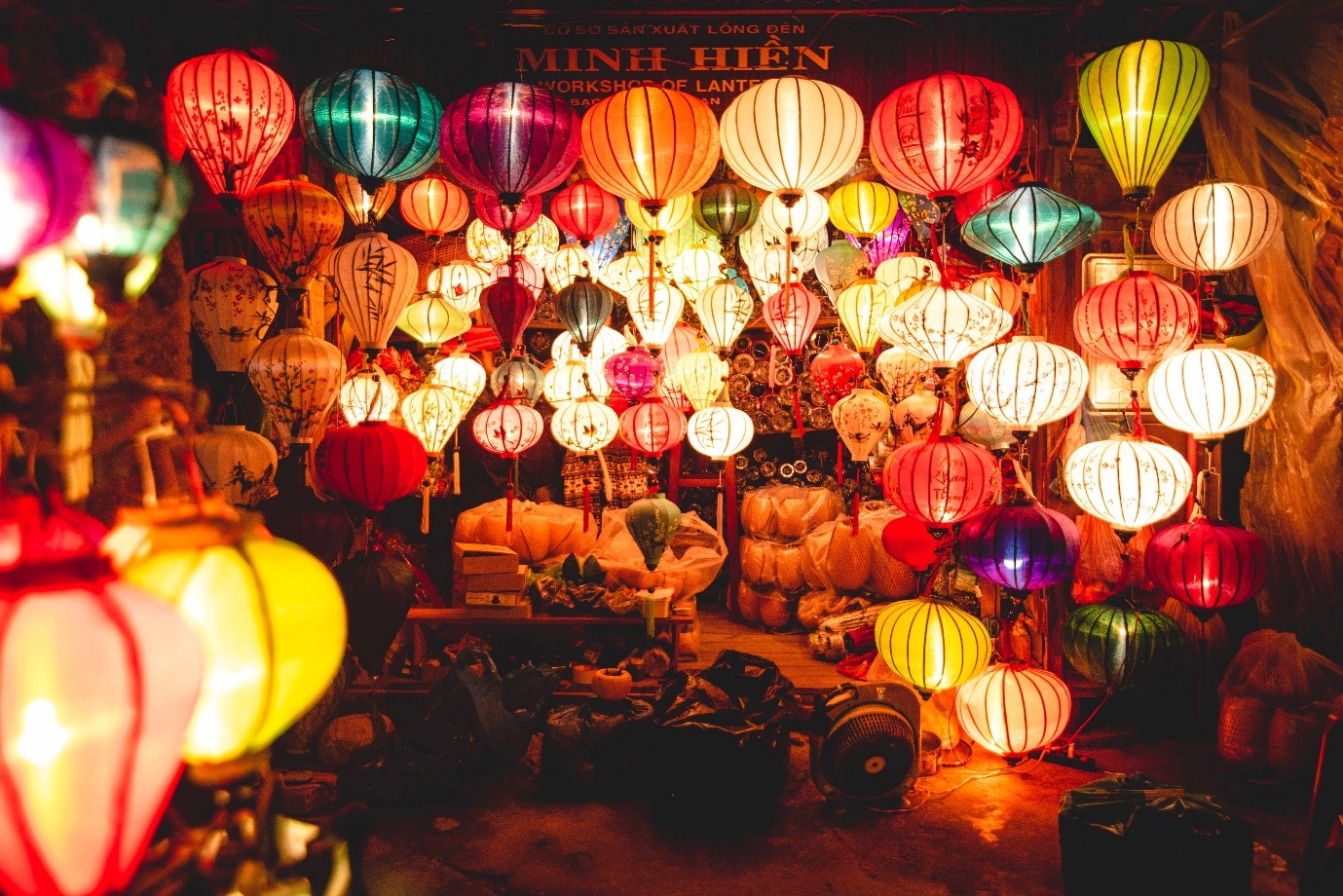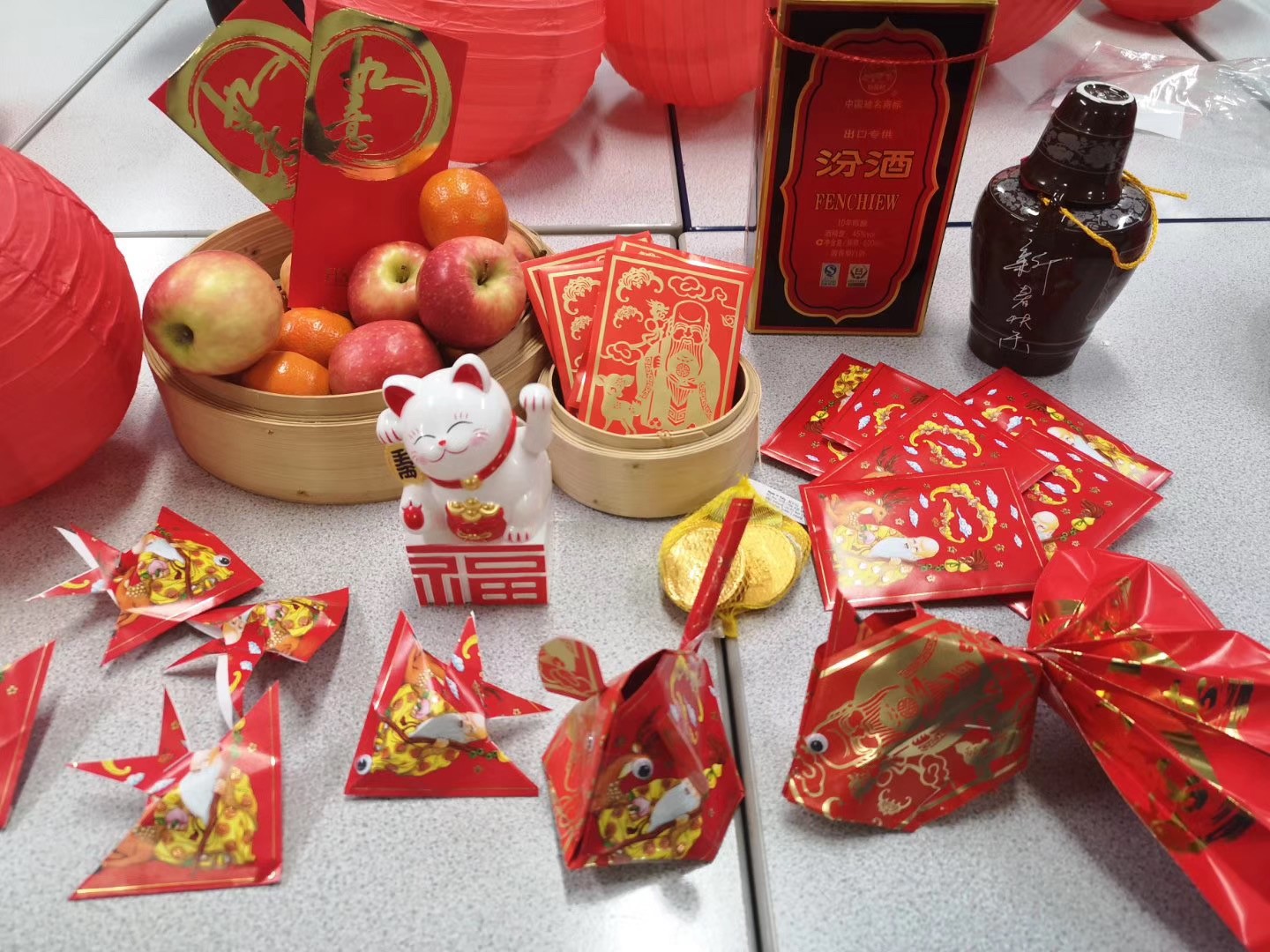Third Year Philosophy student, Irena Donkova reflects on the Lunar New Year, the symbolism of the animals within the Chinese zodiac and the traditions associated with the festival.
On 1 February many people around the world will welcome the year of the Water Tiger, according to the Chinese zodiac. The Chinese New Year, also known as the Lunar New Year, begins with the rising of the second new moon after the winter solstice which usually occurs between 21 January and 20 February. This year, the New Year celebrations, referred to as the Spring Festival, start from New Year’s Eve on 31 January 2022 and last 16 days until the Lantern Festival on 15 February. The festival is celebrated in China, with significant celebrations in South Korea, Vietnam, Singapore; and by the Chinese communities in Malaysia, Indonesia and many other countries besides.
According to tradition, every street and home is decorated in red which is believed to bring wealth and good fortune. Beautiful floral arrangements and fruit trees adorn towns and villages and people gather with family and friends to honour the celebrations. Traditional rituals and customs include ancestral worship, taking part in traditional dances, parades, firework shows and preparing festive food and treats. The final day of the celebrations is marked by people letting paper lanterns off into the sky.
Unlike western astrology, the Chinese zodiac signs are represented by 12 animals forming a 12-year cycle. Each zodiac cycle is part of a bigger 60-year cycle and is governed by one of five elements: metal, water, wood, fire and earth. The current 60-year cycle began in 1984 and will end in 2043. For example, 2010 was the year of the Metal Tiger and 2034 will be the year of the Wood Tiger. The zodiac is based on an old folk tale going back to ancient China, where there was no zodiac and no measurement of time. To find a way to measure time, the Jade Emperor invited all the animals in the kingdom to take part in a Great Race and announced that the first 12 animals to cross the Holy River wouldl have a year of the zodiac named after them.
According to the most common version of the Great Race, the opportunistic Rat asked the Ox for help to carry him across the river. When the Ox approached the other bank, the Rat leapt over the Ox onto the bank and finished first in the race. The good Ox finished second, followed by the powerful Tiger. Then came the Rabbit who was helped to cross the river by the Dragon. Due to his kindness in helping others, the glorious Dragon finished fifth. The Snake who was curled around the horse hoof crossed the finish line before the Horse and took sixth place, while the Horse finished seventh. Then, on a raft arrived the Goat, the Monkey and the Rooster, each of which were assigned eighth, ninth and tenth place. Finally, the Dog arrived, followed by the Pig. The 12 finalists became patrons of the 12 zodiac years.
According to Chinese astrology, a person born in a particular year and the year itself carry the traits of the patron animal which have both positive and negative sides.
Rat (1924, 1936, 1948, 1960, 1972, 1984, 1996, 2008, 2020, 2032)
Rats are considered smart, optimistic and enthusiastic, but they can also be rude and hard-hearted.
Ox (1925, 1937, 1949, 1961, 1973, 1985, 1997, 2009, 2021, 2033)
The Ox is friendly, loyal and hardworking, but can appear stubborn and judgemental.
Tiger (1926, 1938, 1950, 1962, 1974, 1986, 1998, 2010, 2022, 2034)
Tigers are regarded as brave, powerful, strong-willed, energetic and adventurous, but on the negative side can be cold, irritable, cruel and aggressive.
Rabbit (1927, 1939, 1951, 1963, 1975, 1987, 1999, 2011, 2023, 2035)
Rabbits are seen as kind, family-oriented, compassionate and peaceful, but this can also make them too passive, cautious and reserved.
Dragon (1928, 1940, 1952, 1964, 1976, 1988, 2000, 2012, 2024, 2036)
The glorious Dragons are considered to be natural leaders, courageous and charismatic, but also arrogant and impatient.
Snake (1929, 1941, 1953, 1965, 1977, 1989, 2001, 2013, 2025, 2037)
Snakes are regarded as being wise and intuitive, but also vain and manipulative.
Horse (1930, 1942, 1954, 1966, 1978, 1990, 2002, 2014, 2026, 2038)
The Horse is honest, active and enthusiastic, but can be self-centred and short-tempered.
Goat (1931, 1943, 1955, 1967, 1979, 1991, 2003, 2015, 2027, 2039)
Goats are stable, intelligent and creative, but on the negative side, they can be pessimistic, moody and weak-willed.
Monkey (1932, 1944, 1956, 1968, 1980, 1992, 2004, 2016, 2028, 2040)
Monkeys are intelligent, curious and sociable, but can be too competitive, impatient and opportunistic.
Rooster (1933, 1945, 1957, 1969, 1981, 1993, 2005, 2017, 2029, 2041)
The Rooster is considered independent, smart and active, but can also be frivolous and egoistic.
Dog (1934, 1946, 1958, 1970, 1982, 1994, 2006, 2018, 2030, 2042)
Dogs are regarded as loyal, honest, brave and responsible, but they can be conservative, sensitive and stubborn.
Pig (1935, 1947, 1959, 1971, 1983, 1995, 2007, 2019, 2031, 2043)
The pig is considered lucky, generous, diligent and compassionate, but their weaknesses can manifest in them being greedy, self-indulgent and emotional.
As those observing the festival wave goodbye to the year of the Ox, on 1 February 2022 they enter the year of the Water Tiger with hope and aspiration. According to Chinese superstition, 2022 promises to be a dynamic, passionate and tumultuous year full of surprises.
The year’s element is water which has a creative and inspirational influence on events. It can bring prosperity to those open to adventure, but it can be overwhelming and unpredictable. To be successful in 2022 people are encouraged to be cautious, flexible and ready to embrace change.




